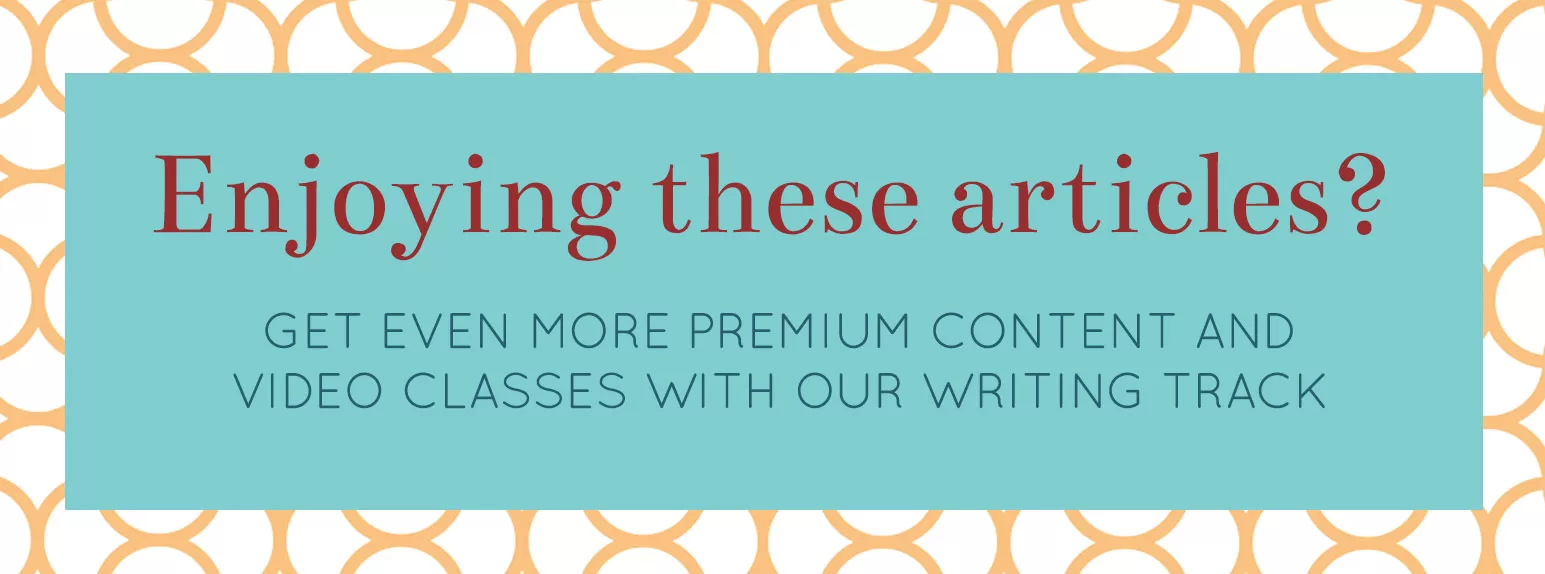The Intuitive Writer

We’ve all heard about “plotters vs. pantsers,” but what about those of us who just can’t seem to integrate any of these writing systems everyone teaches? This class instead breaks us down into “logical vs. intuitive” writers…the only class you’ll ever find for people who struggle to integrate what they’ve learned in classes!
Okay, friends, it’s time to talk MATH!
Hmm? No, I’m not confused. I promise. And I shall prove to you in a few quick steps that you, you writer out there, may in fact be a mathematician. Yup. Even you, who HATE math. You still may be mathematical. Ready? Let’s change some definitions. 😉
Let’s start off with an intro to a man called Blaise Pascal. You may remember him from such quotes as “Heart has its reason that reason knows nothing of.” Yeah, him. He was a brilliant man, expounding on math, physics, philosophy, and faith. I love his Pensees (translation: Thoughts), especially the ones dealing with faith. But it’s also worth reading his thoughts on subjects like math.
I’m not going to quote the whole Thought, but in one of my favorites, Pascal delves into two different kinds of minds—the mathematical mind and the intuitive mind. Here’s the nutshell version: the mathematical mind goes from step to step to step, making reasonable, logic leaps in a progressive fashion–you can in fact call it a “logical mind” if the word “mathetmatical” makes you break out in hives. 😉 The intuitive mind, on the other hand, sees the answer clearly without knowing the steps taken to get there.

So today, we’re going to apply this to writing.
We all know that there are Pantsers and Plotters, and lots of mash-up levels in between. And we also all know there are methods galore on structuring your story, plotting your story, winging your story, building your characters, tormenting your characters (that’s totally a legitimate way of putting it, right?), and every other part of constructing a book. But I’m positing here that those methods are for the mathematical mind.
So what about the intuitive?
First, let’s determine if you might just be an intuitive writer. Here’s a little quiz to help you figure it out.
What’s your favorite book on craft?
-
- Bell’s Plot and Structure
- Lamott’s Bird by Bird
- Maass’s Writing the Breakout Novel
- Craft book? Hmm, I have twenty of them, but I can never get all the way through one…
Where do each of your Three Acts begin?
-
- Chapters Four, Twelve, and Eighteen
- Chapters Three, Ten, and Nineteen
- Chapters Five, Fifteen, and Twenty-Five
- My what now? You do know I’m writing a novel, right, and not a play?
What’s the lie your character is telling herself?
-
- That she is nothing special
- That she cannot succeed without help
- That if she tells the truth, he’ll kill her
- Lie—wait, I know this one. It’s…um…well, she…Stephanie! What’s the lie my character is telling herself??
Detecting the theme yet? 😉 If you’re an intuitive writer, you tend to see the story and, whether or not you plot or pants it while writing, have a hard time putting labels on the elements. Oh, you can usually identify climax, maybe a black moment, some of the big stuff. But all the little labels that spring up? You’d rather clean your room or empty the litter box or scrub the toilet than deal with those.
Guess what? That’s OKAY.

For years, I sat in classes at conference and read blog articles and thought, “Yes, of course, this is how we writers write. This is how we take it up a level or five. This is how we make sure our stories are solid and strong.” Then I’d take my notes, my newly-purchased book and workbook, I’d sit down in front of my WIP…and I’d go blank.
It was frustrating, because I knew my stories had these things. I knew my plots were balanced, that my characters were well developed. And when I emailed Stephanie (my critique partner) for her opinion on these aspects in my book, she could give me the answer in about ten seconds. Did Stephanie know my story better than me? No. Does she have a better grasp on writing? Sometimes I think so, LOL, but it’s not necessarily that. But what she does have is a mathematical mind.
(Insert Stephanie laughing hysterically, calling me all kinds of crazy…) 😉
But seriously. There are those who know how to organize and label and progress from step to step to step. And there are those of us who just can’t. It makes our minds go blank, our creativity dry up, and leaves us frustrated and doubting ourselves.
Now, Pascal himself advocates the perfectly balanced combination of these traits. To put it in terms of writing, it’s the person who can come up with a nearly complete idea and then go through and identify the important parts, tweaking where necessary to make sure each aspect is strong. Those craft books and seminars no doubt come in handy there, but it’s their instinct that helps them apply it wisely and creatively.
But most of us lean one way or the other. And there is advice aplenty for those who need the bullet points and diagrams. For those people, all the systems and classes are so helpful, and they collect craft books like I collect varieties of chocolate. (You know, buy and consume as quickly as possible.) The other side is much quieter—and for good reason. How, exactly, does one teach a non-system?
Well, I don’t dare to say I can teach it to someone who isn’t inclined that way, but I can give you intuitive writers out there a few pointers on how to strengthen your intuition and beef up that mathematical side too.

1. Give yourself permission not to be a labeler.
If you happen to have a great answer to the questions about lies and black moments and acts, great! Use them! Tack them to your wall and go with that. But if you don’t, don’t stress it, don’t fret over it, and don’t waste time that you could be writing trying to figure it out. If methods make your creativity dry up, then they’re not serving their purpose, and you need to give yourself permission not to use them. The whole point of these things is to help you. If they’re not, then don’t feel bound to use them.
2. Learn to recognize the voice of your intuition.
If you’re going to go this route, then don’t slack at it. Does a sentence not sound right or feel right? Don’t be lazy. Fix it. Does one character bother you? Figure out why—and don’t be afraid to ask a critique partner for her opinion. Is a line of dialogue flat? Delete it, replace it. Does your ending feel weak? Rewrite it. Do you feel trapped in the character’s drawing room? Send them out on a mission. After manuscript revision after manuscript revision, I realized that I usually knew what was off long before my critters helped me label it. But I ignored it, and ended up with more work in the end. Once I learned to trust that voice, to know that voice, I eliminated a lot of correcting.
3. Know the Systems.
I’ve never studied the Snowflake or mapped out my Acts, I only made it through a few pages of the Breakout Novel Workbook. But I know the gist of them all, and keeping them in the back of my mind helps me to identify where my weaknesses are and some standard ways of strengthening them. I’ve even tried my hand at various methods of organizing. Index cards, color-coded charts, you name it. I never use one more than once, LOL, but trying them out has helped me in general. Not with labeling, but at least with organizing. 😉
4. Don’t be afraid to twist the rules.
Sometimes my black moment becomes a bright moment. Sometimes my climax involves the character deciding not to act. Sometimes the lie they tell themselves turns out to be true. Sometimes rules have to be twisted–but first I have to know the rules, so the twist is deliberate and well planned. Never break rules just for the sake of it, but once you understand how they’re supposed to serve your story, you can determine whether or not breaking them would serve it better.
5. Trust your instincts.
I wrote, oh, ten or so books before I joined a writers association and learned all the rules. And while I wish (oh, how I wish!) I’d known all these basics of POV and Show v. Tell from the get-go, I also appreciate the rules more because I can look back through my manuscripts and see how I evolved toward them on my own. The last book I wrote before learning about head-hopping didn’t, actually, head-hop. I occasionally shifted POVs when one character left a room without inserting a break, but the scenes themselves were within POV. Still, I needed the Rules to help me solidify those instincts, and to know which ones were right and which ones needed better hewn.
6. Don’t mistake pride for intuition.
My writing has always been and will always be more gut than structure. I do plot—but I don’t examine what part each scene plays. My plotting is more just taking notes on the story that has laid itself out in my mind. Still, I have to be careful not to confuse instinct with knowledge. Knowing how a story should go or a character should grow doesn’t mean I executed it right.
Which takes me back to math class. I drove my teachers nuts in middle and high school by not showing my work. I’d get the right answer, which I thought was all that mattered—but each and every one of them told me that wasn’t enough. Because then, when I was wrong, I had no idea where I’d gone wrong.
The same is true in writing fiction. Intuitive writers will often get it right—but when we don’t, how are supposed to fix it? That’s where we have to learn enough of the mathematical way to keep our instincts in shape. We have to be willing to grant our weaknesses and learn how to shore them up.We have to learn how to apply some of the structure so that we can be wise in what we ignore. 😉 And yes, it’s very, very helpful to have a critique partner who leans the other direction. That way she can help you label when labeling is required, and you can help her fill in the blanks when structure leaves a hole.
In the end, hopefully you’ll end up with a system that combines math and intuition…even if those craft books do gather dust on your shelf.


I so appreciate this! I am an intuitive writer. I’ve let all those books drive me MAD! I read it and think YES, I get it, then I try to apply it to my story and I get confused. I know it’s there somewhere, but the labels aren’t quite right.
You are not alone, April!!! That sounds very much like me. All sounds great…until I try to apply it, then I’m constantly emailing my critique partner for assurance that I really DO have plot elements, LOL. Finally realized it’s just that you can’t teach intuition, so we’re under-represented in books and classes! 😉
Plotter! Then I’m ready to enjoy the writing process like watching a movie. Instead of staring blankly at the blank screen or wasting time on chunks I have to delete.